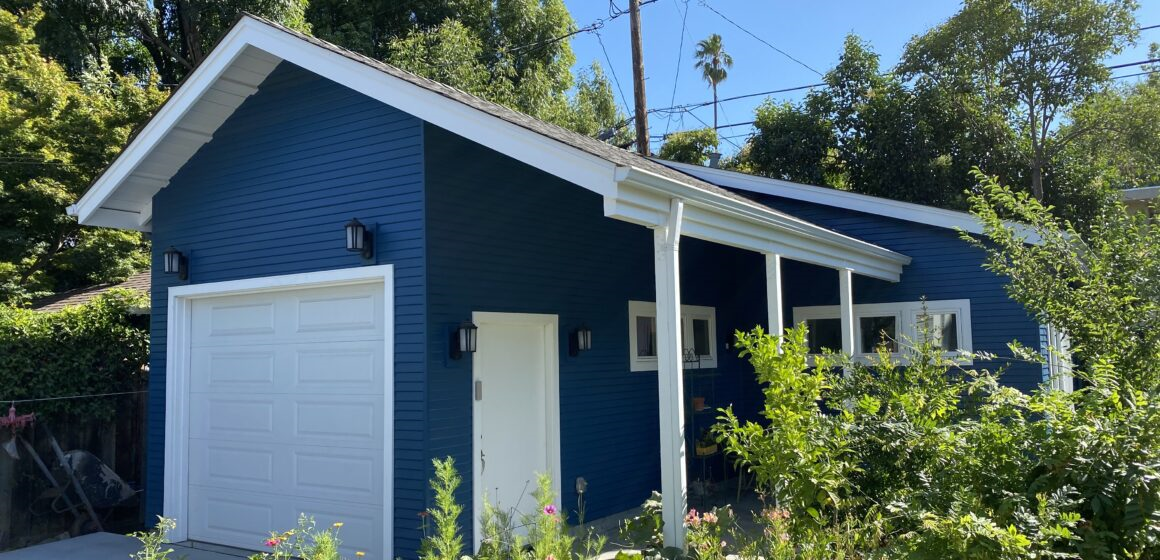by Annalise Freimarck, / article from sanjosespotlight.com
Hundreds of granny units are popping up everywhere in San Jose due to a successful city program implemented five years ago.
The city has issued nearly 3,000 permits and seen 1,451 granny units, also known as backyard homes or accessory dwelling units (ADUs), completed since launching its preapproved contractors program in 2019. In the first three months of this year, the San Jose planning department has issued 123 permits and seen 56 backyard homes finished, according to city data.
Stanley Acton, a contractor and founder of Acton ADU, has been working with San Jose for about 30 years. As a preapproved vendor, he said the city has been one of the easiest to work with compared to others in the Bay Area. He has completed about 50 ADUs in the city since 2018.
“It is complicated and you know, they are challenged in terms of their budget and their ability to staff positions,” he told San José Spotlight. “(But) no criticism here for the city of San Jose. They do a really good job with the resources that they have.”
The streamlined process of building an ADU begins by signing up with one of San Jose’s 21 preapproved vendors. From there, permits can be approved at the initial plan review meeting or within an estimated three months after submittal. The projects must start construction within 12 months of approval, or the permit will expire. City officials said less than 1% of permits expire.
San Jose leans on ADUs to meet housing goals
Long approval waiting times do happen, although they are outliers, according to city officials. If the site is on a unique plot of land, such as a cliff or uneven ground, the owners have to complete a thorough environmental clearance process to ensure the home will have things like proper drainage and avoid disrupting the natural environment.
Deborah Woodward, who contracted with preapproved vendor Abodu ADU, is one of those exceptions. After first applying for a permit in 2021, she just received approval on March 12 because of her unique situation where the original house sits on a cliff, which caused lengthy delays due where the backyard home could be placed. She wants an ADU because she has trouble climbing the stairs in the house she shares with her son and his family.
She said she’s feeling a little relieved after securing the permit, but felt the city and her local representatives didn’t listen to her when she asked for help during the process. To get the permit, she was forced to consider dipping into her savings for the environmental reports the city needed.
“I would never go through a process like this ever again,” Woodward told San José Spotlight. “It was just horrendous, the whole process and the length of time.”
The popularity of ADUs hit its stride in 2021, when the amount of permits submitted hit a record high. The homes have been part of San Jose’s strategy to address its affordable housing crisis and keep up with state housing mandates.
A typical custom-built, detached ADU costs anywhere from $250,000 to $350,000, according to the planning department’s website. The city’s housing plan, which was approved in January a year after the deadline, aims to build 62,200 homes by 2031.
Lisa Joiner, chief building official and deputy director of San Jose’s building department, said the city wants to make the process accessible to residents and contractors to provide affordable housing options.
“ADUs are really popular, and they’re a way to help with the housing crisis,” she told San José Spotlight. “We want to make sure that we can get these through as easily and as seamlessly and without as much headache as we can.”
Preapproved contractor and CityPaks founder Lori Larson is new to the ADU sector, yet she has several projects in the city pipeline, and has built three backyard homes.
Larson said San Jose has one of the more dialed-in preapproval processes in the area.
“It’s nice to be able to provide different opportunities for homeowners to you know, have more selections and different vendors,” she told San José Spotlight.


